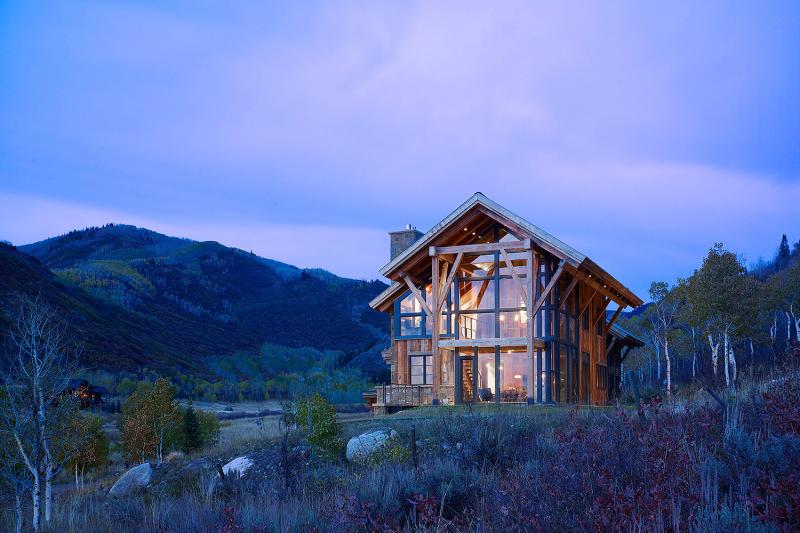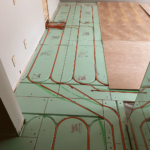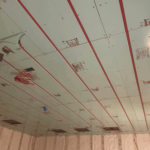Radiant heat, a heating system that warms objects directly rather than the air around them, has been gaining popularity in recent years. Among the various types of radiant heating, hydronic radiant floor heat is a particularly efficient and comfortable option. It’s particularly well-suited for regions with cold climates, where its ability to provide consistent warmth and prevent cold drafts is invaluable.
Examples of Common Applications for Hydronic Radiant Floor Heat
Hydronic radiant floor heating offers numerous benefits and is well-suited for a variety of applications, including:
- Residential Homes: Hydronic radiant floor heating is a popular choice for new homes and renovations. It provides even heat distribution, eliminates cold drafts, and creates a comfortable and cozy atmosphere.
- Commercial Buildings: From offices and retail spaces to hotels and restaurants, hydronic radiant floor heating can be used to provide efficient and comfortable heating in commercial settings.

- Custom Homes: For those seeking a truly unique and luxurious heating system, hydronic radiant floor heating can be customized to meet specific needs and preferences.
- Historic Buildings: In historic buildings where traditional heating systems may be difficult to install or maintain, hydronic radiant floor heating can offer a viable and efficient solution.
- Mountain Lodges: Hydronic radiant floor heating is an ideal choice for mountain lodges, providing even heat distribution and preventing cold drafts in often harsh winter conditions.
- Log Homes & Cabins: The unique construction of log homes can present challenges for traditional heating systems. Hydronic radiant floor heating offers a solution that provides even heat distribution and minimizes heat loss.
- Basements: Basements can be notoriously cold, but hydronic radiant floor heating can transform them into comfortable living spaces.
- Accessory Dwelling Units (ADUs): Hydronic radiant floor heating is a great option for ADUs, providing efficient and comfortable heating in a smaller space.
Residential Applications of Radiant Heat
Radiant heat, which warms objects directly rather than the air around them, offers several advantages for residential heating. Here are some common applications:
Floor Heating Panels
- Even Heat Distribution: Radiant floor heating provides consistent warmth throughout a room, eliminating cold drafts and hot spots.
- Comfort from the Ground Up: Warmed floors create a cozy and comfortable environment, especially for bare feet.
- Energy Efficiency: Radiant floor heating is often more energy-efficient than forced-air systems, as heat is directed towards the floor, where it’s needed most.
- Versatility: It can be installed under various flooring materials, including tile, hardwood, and carpet.
Wall and Ceiling Panels
- Supplemental Heating: Radiant wall or ceiling panels can be used as a supplemental heat source in specific rooms or areas.
- Targeted Heating: They can be zoned to provide heat only where it’s needed, reducing energy consumption.
- Aesthetic Appeal: Panels can be designed to blend seamlessly with interior decor.
Baseboard Heaters
- Baseboard Heating: Radiant baseboard heaters offer heat by transferring heat directly to the surrounding walls and objects.
- Quiet Operation: Some baseboards operate silently, making them a good choice for small bedrooms and other spaces.
Combination Systems
- Multiple sources of Heat: Many homeowners choose to combine radiant heating with forced-air systems to achieve optimal comfort and efficiency. This can be particularly beneficial in larger homes or regions with extreme temperature variations.
By understanding the various applications of radiant heat, you can determine if it’s the right choice for your home and lifestyle. Radiant heating offers a comfortable, efficient, and versatile solution for creating a warm and inviting living environment.
If you’re considering hydronic radiant floor heating for your home or business, it’s recommended to consult with our Radiant Heating Experts to assess your specific needs and determine if it’s the right choice for you.
Related blog posts:


